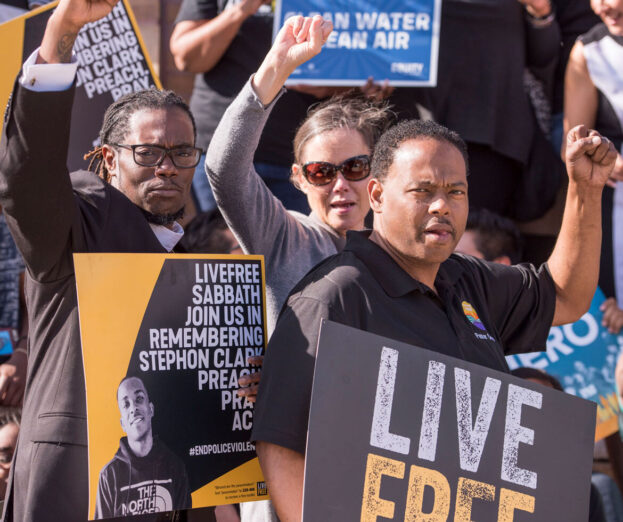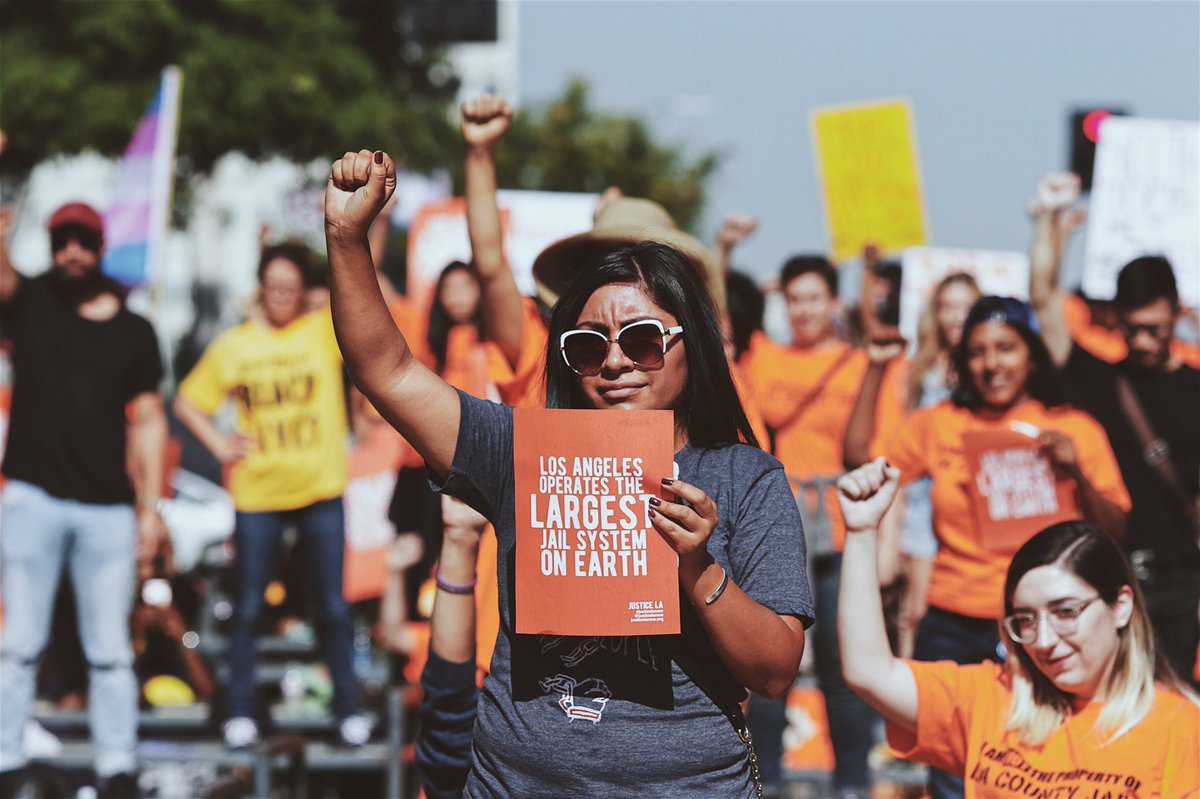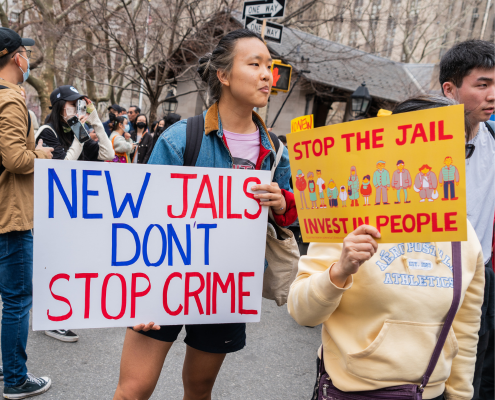Crime and Justice
The criminal legal system was born out of our nation’s racist founding and continues to devastate communities of color.


Why Crime & Justice matter for racial equity:
Decades of “tough-on-crime” policies have devastated communities of color and failed to advance true safety. As a result, Californians of color – especially Black people – routinely experience dehumanization, physical harm, mental and emotional trauma perpetrated by California’s criminal legal system. In addition, due to the over policing of communities of color and low-income communities, Californians of color are particularly likely to come in contact with the criminal legal system and face economic and housing challenges as a result. Rather than responding to every quality-of-life issue through police and punishment, we must recast our approach to safety by reducing the criminal legal system’s scope and creating a comprehensive ecosystem of community care and empowerment that drives wellbeing.

What we find:
The data show that Californians of color, and Black Californians in particular, are devastated by the criminal legal system. For example, it is appalling that Black Californians are nearly 16 times more likely to be subjected to a use of force by police than the group with the lowest rate. In terms of incarceration, the War on Drugs and zero-tolerance policies led to an explosion in the prison population, disproportionately affecting Black men.
Key Takeaways.
Crime and Justice
Learn More about our Methodology
Policy levers:
Throughout California, community leaders advocate divesting from decades of over-investment in crime and punishment and reinvesting resources into care-based services and supports to address the root causes of many communities’ safety challenges. This pivot means reducing sentences, increasing prevention and resources in low-income neighborhoods to help the formerly incarcerated rehabilitate into society and prevent violence without increasing policing. Advocates’ strategies have pushed to win state-level reforms while watchdogging county-level implementation, including the Proposition 47 sentencing reform, limiting jail expansion, and closing jails. However, more needs to be done on this issue area, particularly around over-policing in communities of color and targeting people of color. Since many of those incarcerated need social services, public officials can eliminate these disparities by allocating additional dollars to the provision of housing, substance abuse treatment, and other social services that residents in many communities of color need.
Put Data to Use
Learn how you can take action to eliminate racial disparity and use RACE COUNTS data to advance social justice.
Take Action